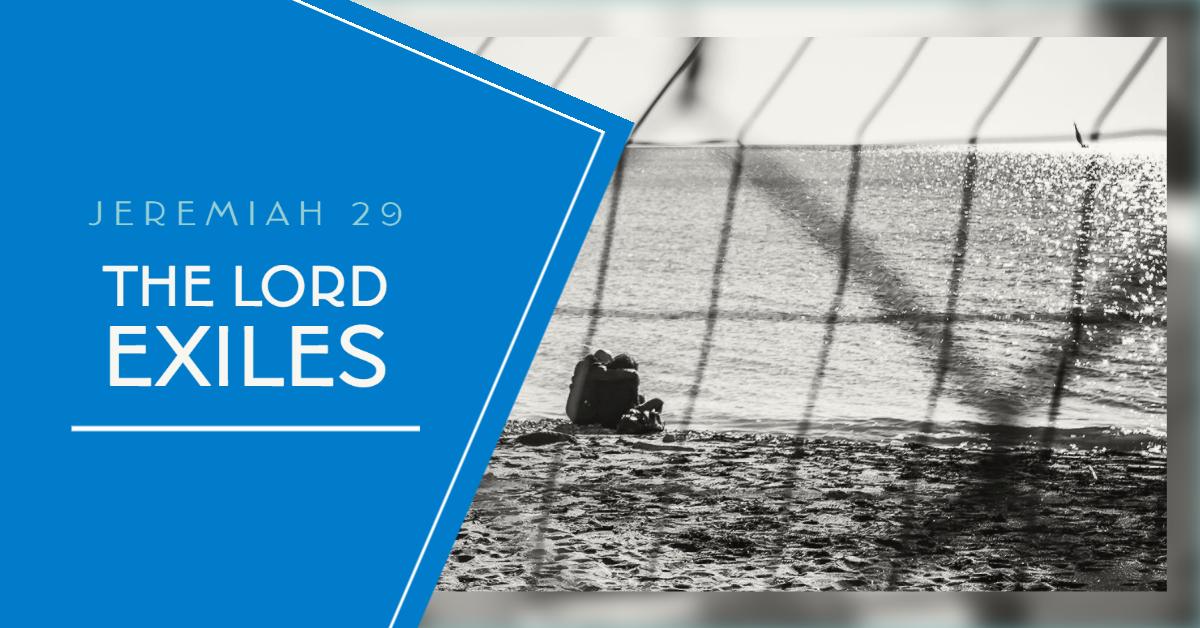
This is post 6 of 9 in a series about the book of Jeremiah.
Exiles
In Jeremiah 29:1, the Bible says that Nebuchadnezzar took God’s people into exile. Just 3 verses later, God takes credit for sending His people into exile (29:4). Just in case it wasn’t clear enough, God takes the credit again in 29:7 and in 29:14.
God’s people in the Old Testament were sent to Babylon in the 597-587 timeframe, B.C.
God’s people in the New Testament were sent back into Babylon in Matthew 28:19-20 & Acts 1:8.
Peter uses the term, “Babylon” as a catch-all for the system of the world setup against God (see 1 Peter 5:13, for example). John joins him by using Babylon the same way throughout Revelation (see, for example, Revelation 18:1-21).
False prophets in the 597-587 B.C. timeframe were telling the people that exile wouldn’t last long (29:8), but Jeremiah told the people to buckle down. Modern day false prophets say the same thing, but the Epistles tell us to buckle down.
The Long Road
I’ve hiked a mountain in Anchorage, AK, called Flat Top a number of times. It isn’t a particularly difficult climb and it isn’t a particularly high peak, but for some reason every time I hiked it my knees would be sore the next day. Jeremiah 29 is like getting to the top of the mountain after a tough hike. You can look down the other side and see what is to come (a long hike down and sore knees).
God’s work in creation informs His work of redemption, and Jeremiah 29 tells the exiles (including us) how to live in the in-between (creation and full redemption). We are still in that in-between and as we look down the mountain from Jeremiah 29 we are informed at how God wants us to live until Jesus returns. Look what God instructs us to do through Jeremiah:
Build houses and live in them; plant gardens and eat their produce. Take wives and have sons and daughters; take wives for your sons, and give your daughters in marriage, that they may bear sons and daughters; multiply there, and do not decrease. But seek the welfare of the city where I have sent you into exile, and pray to the Lord on its behalf, for in its welfare you will find your welfare. (29:5-7)
Do you notice how we are to live? Not as those who don’t care what happens around us because it will all burn anyway, but as those who invest time, energy, and resources into the building of society because we have an opportunity to be part of God’s redemptive plan. Don’t check out, check in. Don’t veg out, get plugged in. Do something beneficial for society because you will benefit from it (29:7). Start a business that can be an engine for transformation. Treat your employees well. Work in a business that has no kingdom mindset and bring a Kingdom mindset into it. Be a blessing.
Eternity
If you want to see what Eternity will be like, read Isaiah 65:17-25. Notice that the language the LORD uses for what Eternity will be like: planting, building, laboring – but not in vain; it is the stuff of Genesis 1:26-28 and Jeremiah 29:5-7. Jeremiah parallels Jesus in Matthew 5:44 when he tells God’s people to live at peace with those around them and to seek blessing for them, because by Revelation 21:27 we will no longer have enemies to bless!
B4T seeks to destroy the sacred / secular divide. We want to live as the Scriptures command us to live, bringing blessing in the Name of Jesus to the ends of the earth, proclaiming the gospel but not forsaking our original (Genesis 1:26-28) and final (Revelation 21:5+) mandate to build and plant.
To learn more about B4T, read Business for Transformation by Patrick Lai.
- Blog Home
- /
- Transformation
- /
- JEREMIAH 29: THE LORD...
